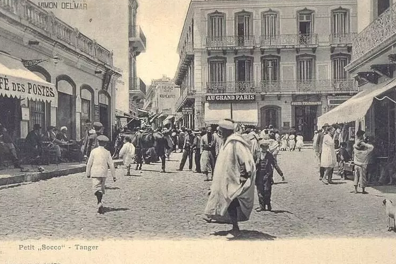Mobility in the modern Mediterranean: Jurisdiction and belonging in the 19th and 20th centuries

Argument to the lecture series
The Mediterranean was always a space of heightened mobility among people and objects. But after the end of the Napoleonic wars, nationalism and modern imperialism, new forms of extraterritoriality, and technological changes such as steam power and the telegraph all fundamentally changed the frequency and consequences of movement across the Mediterranean. The twentieth century brought new ways of traversing space; radio waves brought news and culture across political borders, while the world wars mobilized hundreds of thousands—including colonial subjects. These new forms of mobility, in turn, transformed the ways in which jurisdictional boundaries were drawn, changing the nature of legal institutions and producing new forms of both legality and illegality. And the physical and jurisdictional shifts set the stage for new kinds of belonging during the Cold War and decolonization. Ideologies such as nationalism and anti-colonialism, ethnographic ways of ordering peoples, and racialization all emerged in force. Our aim in this seminar is to use modern forms of mobility to rethink the periodization of the Middle Sea through the interplay of politics, jurisdiction, and technology. This seminar argues against the presumption that the Mediterranean ceased to exist as a privileged space in the modern period. Instead, it was pivotal for new ideas of territoriality, extraterritoriality, and belonging that we explore by considering new turning points, legacies, and continuities centered on the history of mobility between 1815 and 1989.
Lecture series program
- Wednesday, March 12, 2025 from 5:30pm to 7pm at Maison de la Recherche de l'Inalco - Salon Borel (2, rue de Lille, Paris 7e)
- Andreas Guidi (CREE, Inalco) & Jessica M. Marglin (University of Southern California, Dornsife) : Reperiodizing the contemporary Mediterranean: Mobility, Jurisdiction and Belonging, XIXe-XXe siècles
- Wednesday, March 26, 2025 from 5:30pm to 7pm at Maison de la Recherche de l'Inalco - Salon Borel (2, rue de Lille, Paris 7e)
- Lucia Carminati (Universitetet i Oslo) : Canal Affects. Mobility and the Making of an Elusive Anglo-Egyptian-Ottoman Border
- Monday April 7, 2025 from 5:30pm to 7pm at Inalco - Pôle des Langues et Civilisation - Salle 3.11 (65, rue des Grands Moulins, Paris 13e)
- Méropi Anastassiadou (CERMOM, Inalco) : Filières migratoires et identités collectives. Greek immigrants from Imbros in sub-Saharan Africa (first half of the 20th c.)
- Thursday May 15, 2025 from 5:30pm to 7pm at Maison de la Recherche de l'Inalco - Salon Borel (2, rue de Lille, Paris 7e)
- Manuel Borutta (Universität Konstanz): Mediterranean entanglement: Algeria, France, and Corsica, 1828-1976
- Monday, May 26, 2025 from 5:30pm to 7pm at Maison de la Recherche de l'Inalco - Salon Borel (2, rue de Lille, Paris 7e)
- Arthur Asseraf (University of Cambridge): Wavy Sovereignty: Radio and the Remaking of Borders in the Western Mediterranean
- Tuesday June 3, 2025 from 5:30pm to 7pm at Maison de la Recherche de l'Inalco - Salon Borel (2, rue de Lille, Paris 7e)
- Sarah A. Stein (University of California, Los Angeles) : Amateur Film and Sephardi Joy, A Global Spin
Organization
- Andreas Guidi (CREE, Inalco)
- Jessica M. Marglin (University of Southern California, Dornsife)